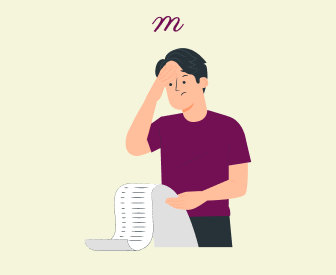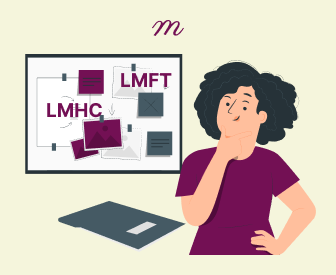Have your progress notes written for you automatically
Receiving a subpoena is not something many mental health clinicians like to deal with. You may feel overwhelmed and scared if you’ve received a subpoena to release information about a client. Many clinicians have questions about what is and isn’t required of you.
Subpoenas are tricky to deal with because psychotherapy notes aren’t a part of the client’s official medical record. The laws and ethics regarding subpoenas for mental health professionals may help you understand the process better.
Understanding your role as a clinician, what can be released, and what needs authorization are all questions you may have. The answers differ based on the requested documentation type and who issued the subpoena. Here’s a guide to subpoenas and psychotherapy notes.
What is a subpoena?
A subpoena is a formal order from a government agency–usually a court that requires evidence to be submitted or testimony to be provided in a legal proceeding. When providers receive a subpoena to testify in court, they must first determine what the subpoena asks for.
First, attorneys can issue subpoenas, so they don’t necessarily have to come from a judge. If you receive a subpoena- from someone other than a judge, it isn’t court-ordered, and you can take the necessary steps to deal with it.
For example, if a client is asking for records to be released to their attorney, you may be able to obtain a release of information (ROI) from your client and turn over records with their permission. It’s essential to understand the ethical and legal consequences of doing so.
If you receive a court-ordered subpoena, it’s necessary that you respond, or you could be held in contempt of court. According to the U.S. Department of Health and Human Services, providers that are covered by HIPAA can share your information if it is court-ordered. HIPAA-covered providers can only disclose the information requested in the court order.
There are legal and ethical guidelines for what can be disclosed. Mental health professionals keep a lot of information about their clients, and only certain information can be included or disclosed if you receive a subpoena. It’s always best to consult an attorney before releasing information or ignoring a subpoena. Regardless of the type of subpoena, they must always be dealt with in some way.
The guidelines for dealing with a subpoena may vary due to state laws. Always consult with an attorney in your jurisdiction for guidance if necessary.
What is a Psychotherapy Note?
A psychotherapy note is a note that involves opinions, analysis, or assesses any part of a therapy session that is for the provider only. They don’t include client information and are kept separate from the rest of the client’s record.
There is no requirement to keep psychotherapy notes. Some mental health clinicians don’t write psychotherapy notes at all.
Insurers such as Medicare and Medicaid can not refuse payment of claims based on failing to produce psychotherapy notes. Under the Health Insurance Privacy and Portability Act (HIPAA), psychotherapy notes are held to a higher standard of protection and privacy than the rest of the patient’s medical record.
Because psychotherapy notes are reflections of the mental health professional and are intended only to help the person who wrote them, clients and third-party payors don’t have access to them. The Department of Health and Human Services recognizes that these separate notes are conducive to the therapist only. Confidentiality of these notes is best for privacy and maintaining good therapeutic relationships with clients.
If you’re a mental health professional who keeps psychotherapy notes, it’s essential to know that these notes should not include information that should go in a client’s official medical record. If psychotherapy notes include this information, it should be part of the client’s official medical record.
These are the private notes and observations of the mental health provider. Patient authorization must be obtained to release these notes to anyone else. Psychotherapy notes may be released without patient authorization in particular circumstances, such as:
Can Psychotherapy Notes be Subpoenaed?
Yes, psychotherapy notes can be subpoenaed, but it’s extremely rare, especially since there are special protections under privacy laws for psychotherapy notes. There would rarely be a subpoena explicitly issued for psychotherapy notes.
Progress notes, treatment summaries, or other aspects of the client’s official record are often subject to being subpoenaed, but not usually psychotherapy notes. Not all mental health professionals even keep psychotherapy notes, and they are intended to be private.
Which Notes Can be Subpoenaed?
All mental health professionals are required to keep progress notes; progress notes are an official part of the client’s medical record and include:
- Start and stop times of session
- The client’s name and date
- Treatment plan goals
- What was discussed in the session
- What techniques and modalities the therapist used
- Steps toward progress
- The results of assessments or tests
There is a comprehensive wealth of information that has to be documented in progress notes. If you are a clinician who needs help documenting progress notes, Mentalyc can help. Mentalyc is a HIPAA-compliant AI that writes your progress notes in less than two minutes. You can try Mentalyc for free today.
Progress notes to document the session are required by many ethics boards and for insurance companies to pay for the session.
Psychotherapy notes are different from progress notes. Psychotherapy notes aren’t required, so not every psychotherapist keeps these types of notes. If you receive a subpoena, there are some steps you should take to deal with it since there are extra privacy rules regarding psychotherapy notes.
What should I do if I receive a subpoena?
If you receive a subpoena, remain calm. The first step is determining whether a lawyer or court requests the information. Once you have established that it’s a legitimate court-ordered subpoena, establish what information is being requested.
Once you do that, look at applicable laws in your state about what can be released. It’s wise to consult with an attorney. You can often speak to an attorney through your liability insurance provider. They will direct your next steps.
If you must release notes or testify in court, an attorney can walk you through this. Most of the time, you will be required to release information that is a part of the client’s official medical record. You can also charge for the time it takes to prepare notes and prepare for court.
You must inform your client what you are releasing and have them sign an authorization to release information. If you provide therapy, it’s best to notify clients that a court-ordered subpoena requires you to break confidentiality and answer any questions your clients might have about subpoenas.
Including court-ordered subpoenas as a confidentiality limit may be essential to a mental health provider’s informed consent, whether written or verbal.
Let’s review
Psychotherapy notes are kept to help the mental health clinician note observations or analyze parts of psychotherapy sessions that aren’t part of a client’s record. These are solely meant to help the clinician and are protected from having to be released to third-party payors.
Receiving a court-ordered subpoena can be scary, but in most cases, you will not have to turn over your psychotherapy notes regarding a case. Progress notes are a different story and can be subpoenaed in court.
If you receive a subpoena, regardless of whether it’s court-ordered or not, or no matter what it’s requesting, you need to address it. Be careful not to release client information when doing so, and consider consulting with your attorney or speaking with your liability insurance attorney for further details on what to do.
The bottom line is that psychotherapy notes can be subpoenaed, but it’s unlikely. You would need a separate authorization from the client to release psychotherapy notes under HIPPA law. You’re more likely to receive a request or testify in court about information related to the client’s official medical record.
Best practices of most mental health disciplines and most ethics codes require that mental health clinicians speak to their clients about the limits of confidentiality. Court-ordered subpoenas are one of the limits of confidentiality, and you should consider speaking to your clients about what information is being released if you receive one.
Lastly, psychotherapy notes are different than progress notes. Progress notes are the official documentation of what occurred between the client and the mental health provider during the session. Progress notes are often needed if you receive an audit from a third-party payor such as an insurance company.
Psychotherapy notes aren’t required for any profession, so they aren’t needed to pay for a session. If you keep psychotherapy notes, keep them somewhere secure, apart from a client’s medical record.
Article References:
- American Psychiatric Association. (2014). Psychotherapy notes under HIPAA. https://www.psychiatry.org/File%20Library/Psychiatrists/Practice/Practice-Management/Practice-Management-Guides/GeneralIssues-psychotherapy-notes-HIPAA.pdf
- U.S. Department of Health and Human Services. (2020). Court Orders and subpoenas. https://www.hhs.gov/hipaa/for-individuals/court-orders-subpoenas/index.html
- U.S. Department of Health and Human Services. (2017). Does HIPAA provide extra protections for mental health information compared with other health information? https://www.hhs.gov/hipaa/for-professionals/faq/2088/does-hipaa-provide-extra-protections-mental-health-information-compared-other-health.html
Disclaimer
All examples of mental health documentation are fictional and for informational purposes only.











